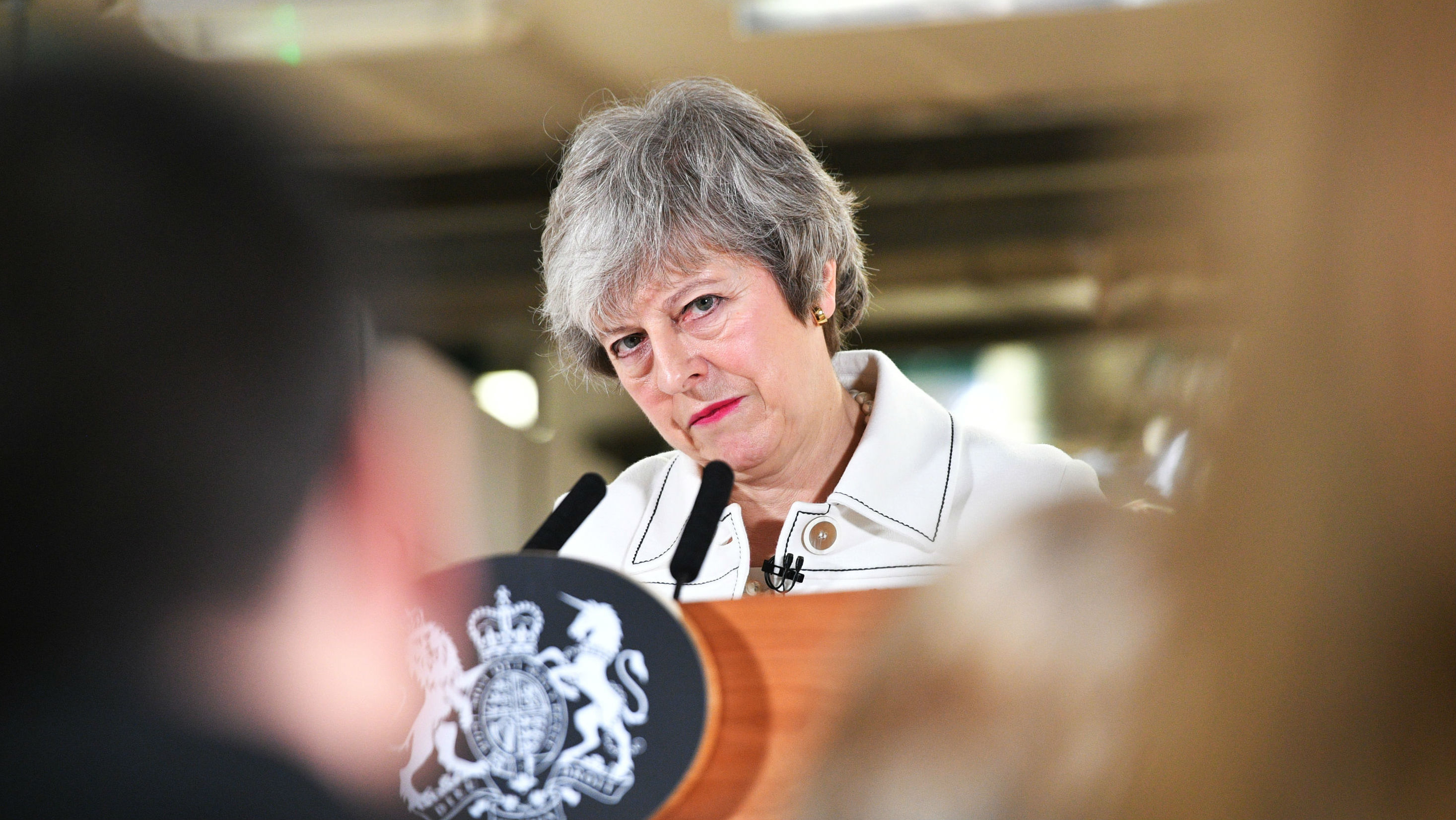Why tonight’s Brexit vote is so important
Commentators say Britain facing ‘prolonged period of chaos’

A free daily email with the biggest news stories of the day – and the best features from TheWeek.com
You are now subscribed
Your newsletter sign-up was successful
The Commons vote tonight on Theresa May’s Brexit deal is gearing up to be one of the most important in Parliament since the Second World War.
MPs will finally have the chance to support or reject the prime minister’s proposal for how the UK leaves the European Union, in a “meaningful vote” due to take place at around 8.30pm.
May has “found herself resorting to a mixture of pleading, threats and stark warnings” in the past 24 hours, says The Daily Telegraph - which adds that with scores of Tory MPs expected to rebel, she fears a “crushing defeat”.
The Week
Escape your echo chamber. Get the facts behind the news, plus analysis from multiple perspectives.

Sign up for The Week's Free Newsletters
From our morning news briefing to a weekly Good News Newsletter, get the best of The Week delivered directly to your inbox.
From our morning news briefing to a weekly Good News Newsletter, get the best of The Week delivered directly to your inbox.
Vernon Bogdanor, professor of government at King’s College London, says the vote “could be the most crucial in our parliamentary history since the War”.
“It will help decide whether we leave the European Union on agreed terms, whether there is a no-deal Brexit or whether the whole Brexit process is put into reverse,” he writes in an article for the Telegraph.
Under normal circumstances, governments can be confident of securing a majority for negotiated treaties, but “these are not normal times”, says Bogdanor. May’s minority government has suffered a total of 27 defeats, four of which have been the heaviest in post-war parliamentary history, he notes.
In Downing Street there is “a gathering mood of impending disaster”, with some fearing that tonight May could lose by 200 votes or more, says the Financial Times.
A free daily email with the biggest news stories of the day – and the best features from TheWeek.com
Such a massive defeat for her plan, negotiated over two years with the 27 other member states, would “plunge Britain’s future relationship with Europe into doubt”, the newspaper adds.
Nobody knows what the PM will do next as she has not discussed a plan B with her cabinet, The Times reports. Many expect her to “limp on with the same failed plan”, but there is nothing to suggest the EU or Parliament would budge in the future, the paper continues. Neither is it clear whether she could muster a majority for any alternative.
Britain is heading for “uncharted waters”, The Times concludes. “The country should brace itself for a prolonged period of chaos.”
The Guardian’s Polly Toynbee is equally pessimistic. “Let no one think it will soon be over,” she says. “This is only the end of the beginning, in a Brexit civil war that will last a generation.”
-
 How the FCC’s ‘equal time’ rule works
How the FCC’s ‘equal time’ rule worksIn the Spotlight The law is at the heart of the Colbert-CBS conflict
-
 What is the endgame in the DHS shutdown?
What is the endgame in the DHS shutdown?Today’s Big Question Democrats want to rein in ICE’s immigration crackdown
-
 ‘Poor time management isn’t just an inconvenience’
‘Poor time management isn’t just an inconvenience’Instant Opinion Opinion, comment and editorials of the day
-
 How corrupt is the UK?
How corrupt is the UK?The Explainer Decline in standards ‘risks becoming a defining feature of our political culture’ as Britain falls to lowest ever score on global index
-
 The Mandelson files: Labour Svengali’s parting gift to Starmer
The Mandelson files: Labour Svengali’s parting gift to StarmerThe Explainer Texts and emails about Mandelson’s appointment as US ambassador could fuel biggest political scandal ‘for a generation’
-
 The high street: Britain’s next political battleground?
The high street: Britain’s next political battleground?In the Spotlight Mass closure of shops and influx of organised crime are fuelling voter anger, and offer an opening for Reform UK
-
 EU-Mercosur mega trade deal: 25 years in the making
EU-Mercosur mega trade deal: 25 years in the makingThe Explainer Despite opposition from France and Ireland among others, the ‘significant’ agreement with the South American bloc is set to finally go ahead
-
 Biggest political break-ups and make-ups of 2025
Biggest political break-ups and make-ups of 2025The Explainer From Trump and Musk to the UK and the EU, Christmas wouldn’t be Christmas without a round-up of the year’s relationship drama
-
 Who is paying for Europe’s €90bn Ukraine loan?
Who is paying for Europe’s €90bn Ukraine loan?Today’s Big Question Kyiv secures crucial funding but the EU ‘blinked’ at the chance to strike a bold blow against Russia
-
 ‘The menu’s other highlights smack of the surreal’
‘The menu’s other highlights smack of the surreal’Instant Opinion Opinion, comment and editorials of the day
-
 Moscow cheers Trump’s new ‘America First’ strategy
Moscow cheers Trump’s new ‘America First’ strategyspeed read The president’s national security strategy seeks ‘strategic stability’ with Russia